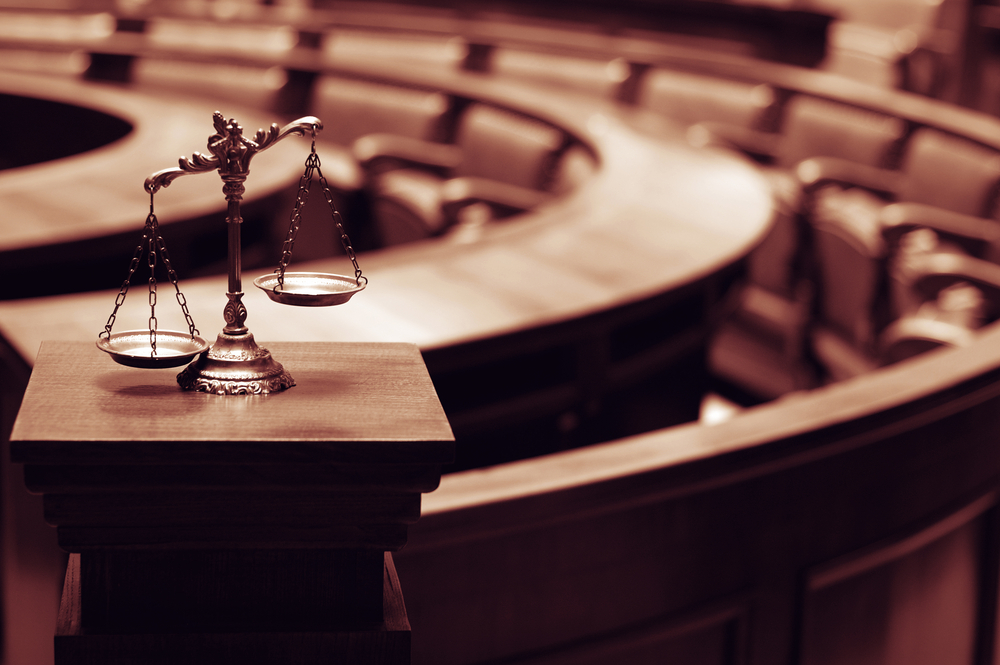The first time I lost a trial I honestly wasn’t sure I’d recover. I’d tried less than 10 jury trials, and I’d been fortunate enough to win them all. This case was different though. During the 2 year period from when the case was filed to when we went to trial, I knew it was going to be a tough case to win. The medical care was good, and my expert could defend every thing my doctor had done. But the story the patient’s attorney had to tell was compelling, and the damages were extensive. When your plan for trying a case is to put good medicine up against a wonderful, likable, sincere woman who’d suffered significant pain and had horrific scars to prove it, you’ve got to recognize you’re facing a challenge.
But once trial started, I was all in. You have to be all in to try a case well. A jury isn’t likely to believe you should win your case if you don’t believe it. By the time the case went to the jury to deliberate, I was quite sure we should and, more importantly, would win.
“All stand for the jury.” My legs always shake when a jury files in with a verdict slip in the foreperson’s hand. We sat as the foreperson stood to read that verdict. My routine is to keep a jury sheet in front of me, and fill it in as the foreperson speaks. Here–I couldn’t believe what I was writing. We’d lost, and the verdict was high.
Initially, I was appalled and angry. I’d let my client down, and I didn’t know what to say to the doctor who I’d tried so hard to serve. I stood waiting outside the jury room to see if any of the jurors would want to talk to me, to explain their verdict. They didn’t. They filed out, avoiding eye contact as they went back to their lives. I felt like my life would never be the same. Walking home, wheeling my trial bag which seemed heavier with each bump, I started to cry. By the time I reached Rittenhouse Square I was weeping, hoping I wouldn’t see anyone I knew as my shoulders wracked with tears and disappointment. I should have taken a cab.
I wanted to skip work the next day. I didn’t want to go to the office and deal with sympathetic looks or questions from those who hadn’t heard the whispered news. “She lost.” But I had other cases to handle, and clients to serve. I got in even earlier than usual, went to my office and closed the door. That didn’t stop the phone from ringing, though. For other attorneys in other cases, life didn’t stop for my benefit.
A seasoned defense attorney called that morning, and said he’d heard about my loss. “Remember, Heather, if you aren’t losing, you aren’t trying the tough stuff. It’s easy to win the winners.”
Twenty years later, I still can’t say that I’ve grown better at losing. But I do know that lawyer was right, about trials and about life. “If you aren’t losing, you aren’t trying the tough stuff.” I keep trying cases, and more importantly I keep taking chances. Losing is a horrible feeling. But knowing, deep in my heart, that I’m not trying the tough stuff? I can’t live with that.
The origin of the word try is the old French “trier”–“to sift and to know the wrong from the right”. Juries do their best to determine what is wrong and right for us in courtrooms, but we do it for ourselves everyday. We will never know what is wrong or right for us unless we are willing to try the tough stuff, and that means we must be willing to lose.
I’m starting a new business to change healthcare relationships for the better. I moved. I’m traveling a lot, internationally, and often alone. I’m trying the tough stuff, and I’m working on accepting that might mean I’m bound to lose sometimes. I do believe it also means I will find what’s right.
Originally published at www.h2spark.com


